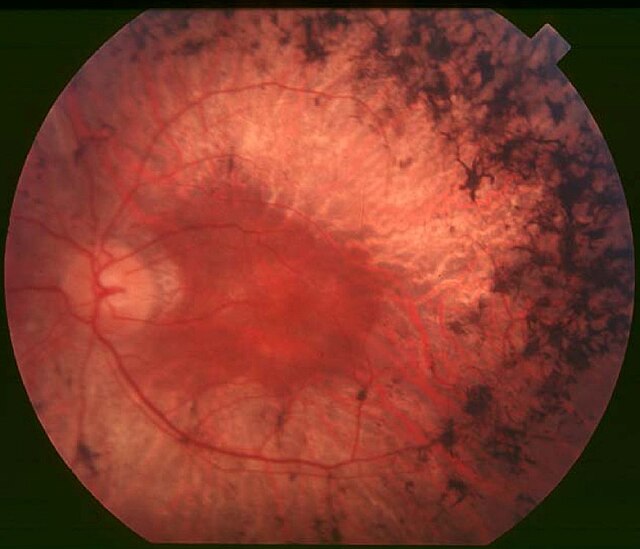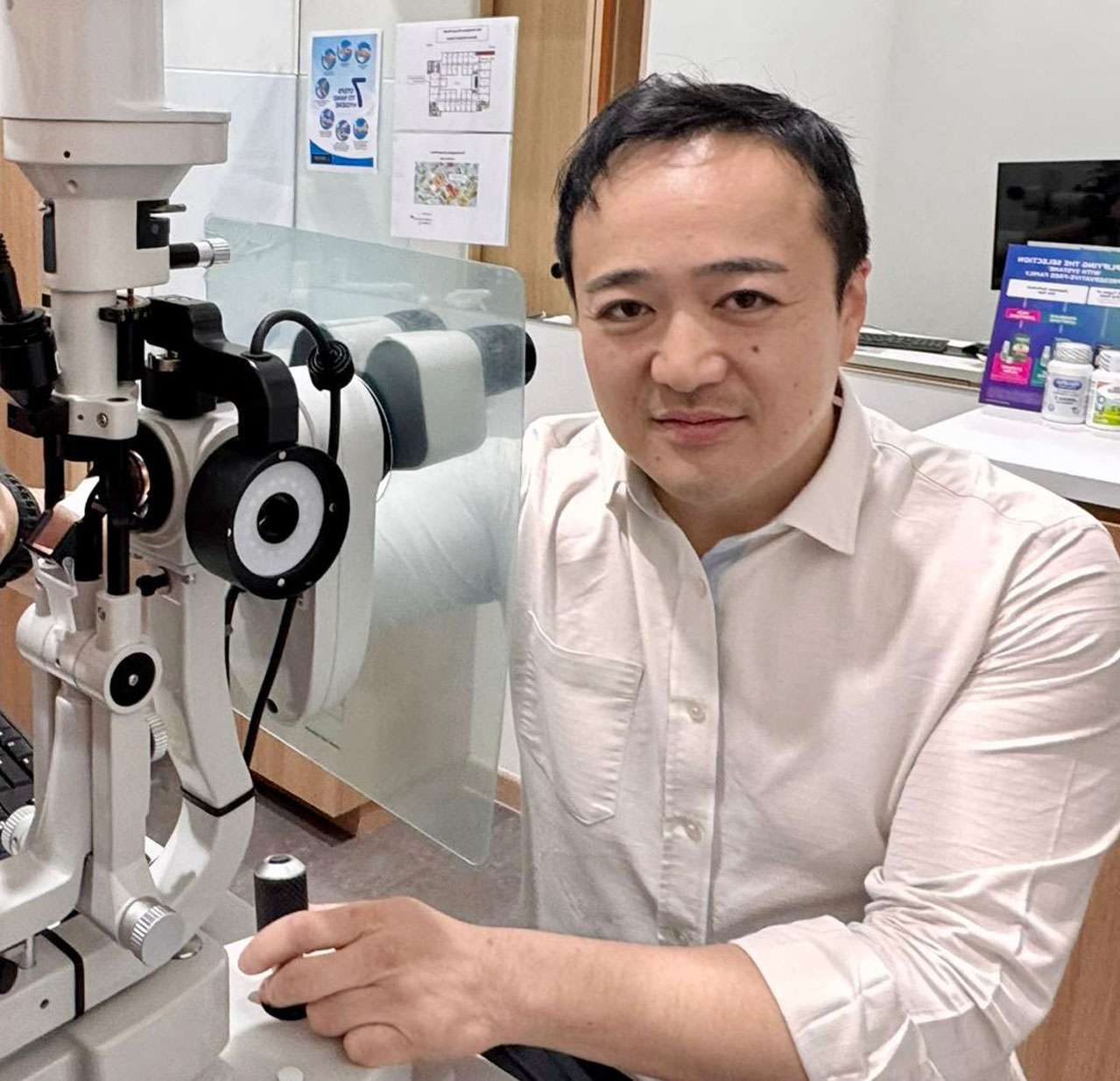Understanding and Managing a Genetic Condition That Affects Night and Peripheral Vision
Have you or a loved one been experiencing difficulty seeing at night or noticing a gradual narrowing of your side vision? These could be signs of retinitis pigmentosa (RP), a group of inherited retinal conditions that slowly affect the eye’s ability to respond to light. While there is currently no cure, ongoing care and targeted management can help preserve remaining vision and support daily functioning.
At London Eye & Retina, we offer diagnostic support, lifestyle guidance, and ongoing monitoring for patients with RP, helping you adapt and make informed choices about your eye health.
What Is Retinitis Pigmentosa?
Retinitis pigmentosa is a genetic disorder that causes the progressive breakdown of photoreceptor cells in the retina, particularly the rods, which are responsible for night and peripheral vision. Over time, the cones (used for colour and central vision) may also be affected.
RP often begins in adolescence or early adulthood, though symptoms can vary widely depending on the genetic subtype.
What Causes RP?
RP is inherited and can be passed down through several genetic patterns:
- Autosomal dominant
- Autosomal recessive
- X-linked (often more severe in males)
More than 60 genes have been linked to RP, and genetic testing can help identify the specific mutation involved.
Common Symptoms
The symptoms of RP usually develop gradually and may include:
- Night blindness (first noticeable in dim lighting or dark environments)
- Tunnel vision (loss of peripheral vision)
- Difficulty adjusting between light and dark settings
- Progressive narrowing of the visual field
- In later stages, central vision loss
RP can affect both eyes and tends to worsen over time, though the rate of progression differs between individuals.
How Is RP Diagnosed?
At London Eye & Retina, we use several advanced tools to confirm a diagnosis:
- Visual field testing: To map peripheral vision loss
- Electroretinography (ERG): Measures the retina’s electrical response to light
- Optical Coherence Tomography (OCT): Assesses structural changes in the retina
- Fundus photography: Documents pigmentary changes on the retina
- Genetic testing: Helps determine the specific gene mutation and inheritance pattern
Is There a Cure for RP?
Currently, there is no cure for RP, but several management strategies are available to slow progression and improve quality of life:
- Vitamin A supplementation: May slow progression in some types (under medical supervision)
- Low vision aids: Magnifiers, special glasses, and adaptive lighting for reading and mobility.
- Orientation and mobility training: Especially in later stages
- Gene therapy and clinical trials: Ongoing research into targeted treatments for specific genetic subtypes (e.g., RPE65 gene therapy)
We keep our patients informed about the latest treatment options and relevant clinical trial opportunities.
Ongoing Support Matters
RP affects more than just your eyesight; it impacts daily living, career planning, and emotional well-being. Our team is here to provide long-term care and support, helping you adjust and access tools to maintain independence.
Schedule a consultation with Dr. James Ng at London Eye & Retina and explore your options for clearer, sharper sight.
Let us help you navigate RP with clarity and confidence for the years ahead.


